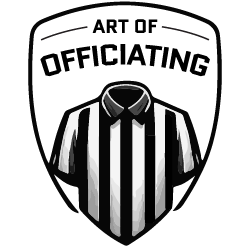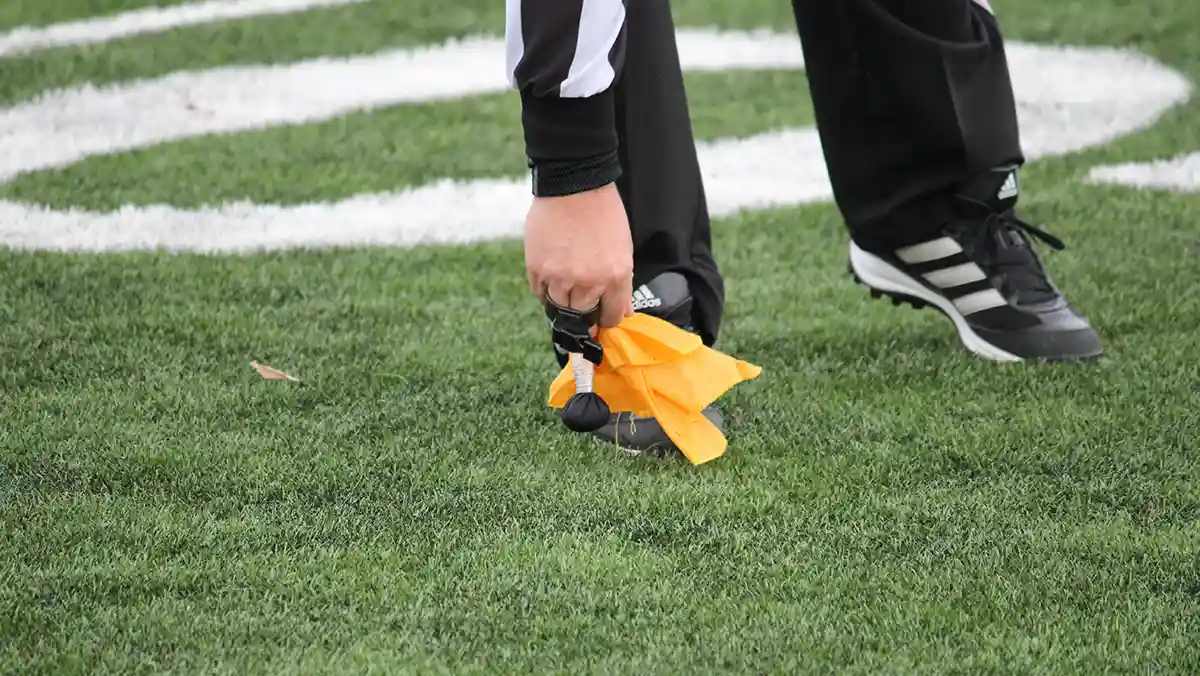I dislike the axiom, “What we permit, we promote.” That saying implies officiating is a binary endeavor. It suggests if we allow a player to “get away” with a word or act, we are somehow promoting it. We study the rule book to provide a foundation for our decisions on the field. Although the rules are fairly specific and directive, many times we operate in “gray” areas, so it’s important for us to recognize officiating is both an art and a science. That’s why we often explain our decisions to a coach by first saying, “In my judgment…”
Why do we have high school football officials?
Randy Campbell is a former college football official and current RMAC Coordinator of Football Officials and NFL replay official. He’s stated we employ football officials for three reasons:
1) Manage/Administer the game,
2) Facilitate safety, and
3) Ensure one team does not illegally gain an advantage over the other team.
It’s our job to determine if a player’s or coach’s word or act impedes these objectives.
Football officiating is not an exact science
There are many “shades of gray.” Although we have certain “absolutes” on the field, we can’t create one template or tenet that solely applies to each of the diverse situations we encounter. There is typically no “one size fits all” response. It’s helpful to refer back to Randy’s “why we have officials” purposes: Did the team’s/player’s/coach’s words or actions 1) Keep us from properly administering the game, 2) Compromise safety, or 3) Allow a team to illegally gain an advantage? If the answer is “no,” to each question, it’s correct to apply an “art of officiating” precept and keep our flags in our pockets.
What would you do in this case?
For example, while A15 runs around the right end, left tackle A77 (on the opposite side of the field) twists and pulls B50 to the ground. While the ball is still live, B50 rises to his feet, slams into A77, and knocks him to the ground. Neither action is at the point of attack and neither action impacts the play. Do we flag the action, offset the fouls, and replay the down? Do we keep our flag in our pocket and use our proximity and voice to de-escalate the situation?
Ruling on holding requires personal judgment
Judging holding is another common example. We have to decide if a player’s action was
1) demonstrated restriction,
2) at the point of attack, that
3) impacted the play.
We must apply personal judgment. Ruling on defensive pass interference requires comparable judgment with different criteria.
Watch the guard and tackle on the left side of the line. In your judgment, do either linemen restrict the defenders from reaching the quarterback? The left guard manhandles his opponent to the ground and the left tackle hooks his opponent. The umpire tosses his flag on one of the two. By the way, the umpire’s flag should not be skied; the umpire should toss his flag to the holding spot.
In the following video, the two inside receivers on the right side of the formation run in a straight line toward their defenders. There is a collision at the B-11 and both receivers continue with their pass routes. The back judge tosses his flag for defensive holding.
Rule 9-2-3c states
A defensive player shall not use his hands or arms to hook, lock, clamp, grasp, grasp, encircle or hold in an effort to restrain an opponent other than the runner.
In this play, the defenders don’t know if their opponents are initiating a block or if they are running a pass route. By rule interpretation, the defenders can block the offensive players until they are beyond the same yard line. If the offensive player is beyond the same yard line as the defender, the defender cannot initiate a block.
We are not the penalty police
We can’t be the “penalty police” and throw our flags on each perceived indiscretion. Football officials can’t be draconian. I’ve shared the field with officials who insisted on penalizing every act, and candidly it was irritating.

